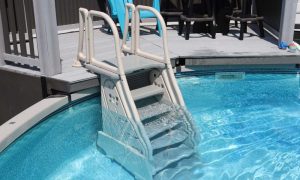By Emily Johnson
Many industries around the world are developing strategies to invest in more sustainable products and programs. The pool and spa industry has the same potential to adopt some of these ecofriendly practices. Because of their remarkable ability to dissolve many kinds of contaminants, the industry is constantly looking for ways to increase its product range using enzymes and surfactants.
These technologies are not new to many pool operators. Pool professionals can recommend more tools to their customers to keep their pools operating at peak performance. Inadequate sanitizer residuals are not the cause of all pool problems. For water quality problems, a clarifier may be prescribed for you. This clarifier will remove hazy water and can also be used to create other solutions. To be effective, chemicals used to maintain or clean pools don’t need to have any killing properties. Specialized enzymes are a great option as many of the water quality problems stemming from biological contaminants.
The importance and importance of cleanliness
All kinds of organic pollutants are brought to the water by swimmers and bathers, including their body lotions and makeup, as well as bather wastes and skin products. Other unpleasant substances can also be introduced to the water by environmental factors like animals and weather events. In the spa and pool industry, it is common for bathers to leave behind 473mL (16 oz.) of organic waste after a single hour. While pool owners want to enjoy their tranquil oases, it is important to maintain them clean. Pool owners should ensure that they do not allow leaves or sticks to remain in their pools.
Organic waste is mostly ignored as it floats on the surface. This results in unsightly scum lines and skimmer marks. These oils and greases can trap dirt and debris and cause clogging of the filter. Cleaning the pool can improve its esthetics. However, it is also important to maintain the pool’s surface and skimmer so that they don’t need costly repairs or replacements. The majority of these contaminants are destroyed by sanitizers, which leads to a high demand for chlorine. These contaminants can be reduced into manageable levels by supplementation products, which allows the sanitizer’s focus to kill bacteria.
What enzymes are and how do you use them?
For many years enzymes have been used in laundry products and household cleaners to remove specific types of stains. Enzymes are required by the human body to help digest food and medications. Enzymes can also be used to clean up oil spillages from industrial plants. There are many uses for enzymes so it is not a problem to use them in spas and pools. Although enzymes aren’t new to the industry they aren’t recommended as much as they should.
Enzymes are proteins that catalyze chemical breakdown of other substances without being destroyed or modified. They are very specific and seek out only certain targets or “substrates” which then transform into a new product or form. Their complex structures contain amino acids chains that break down substrates with minimal energy cost. The enzymes that move through water collide with non-living substances, resulting in smaller, more manageable parts. The filter can remove these smaller forms of the substrate, while the remaining enzyme can move on to the next target.
The post Why enzymes are so important for pool maintenance and care was first published on Pool & Spa Marketing.








